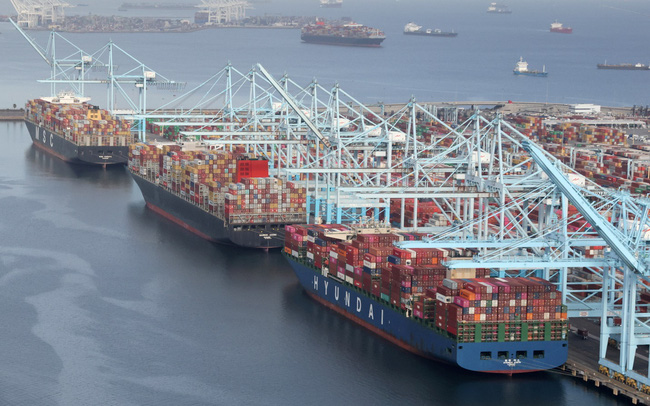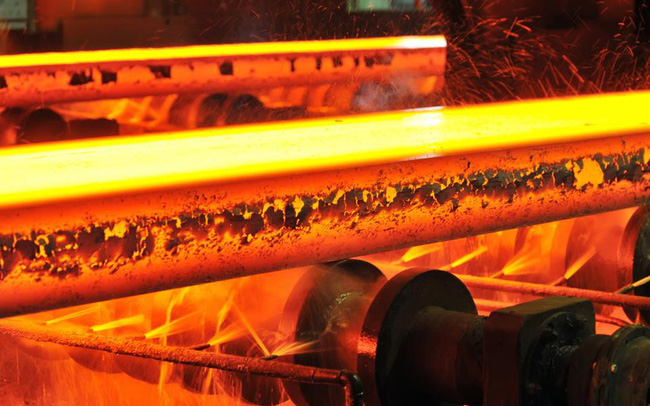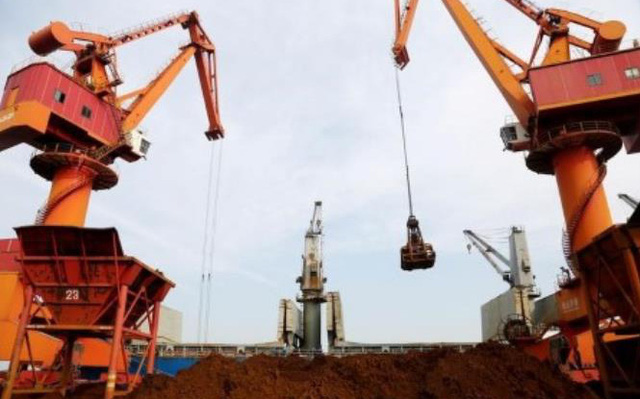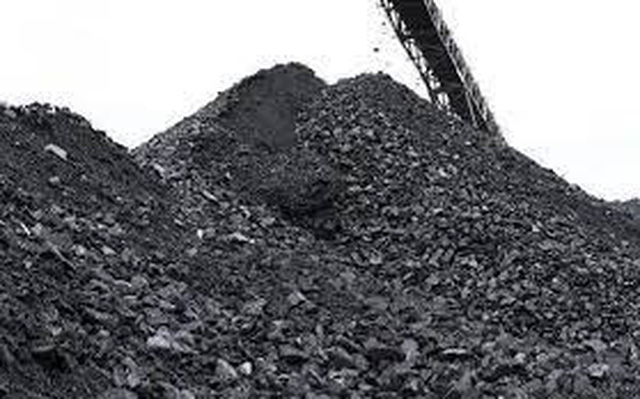China’s iron ore demand is also being masked by a policy of tightening steel output, concerns about the impact of the worst COVID-19 outbreak since early last year, inflationary pressures and industry growth. industry slows down during the economic recovery period.
The policy of tightening steel production caused ore imports to drop sharply
According to the Australian Financial Review, China’s iron ore imports fell for a fourth straight month in volume amid Beijing’s tightening of steel output.
In addition, China’s iron ore demand is also being clouded by concerns about the impact of the worst COVID-19 outbreak since early last year, inflationary pressures and slow industry growth during the period. economic recovery.
While analysts previously attributed the drop to supply problems from Australia and Brazil, recently they attributed the drop in iron ore imports to China’s policy of reducing steel output.
China’s latest data shows that iron ore imports fell to 88.5 million tons in July, down about 1 million tons from June. Compared to the same period last year, this figure decreased by about 21%. .
The country’s iron ore imports have been steadily declining since March, partly due to limited overseas supplies. Analysts say the latest data is an indication of government policies aimed at reducing steel production to meet carbon emissions targets.
“Steel mills in the Shanxi region have been ordered to cut capacity by 50% to limit steel output below last year’s record high. At the same time, local authorities are committed to vigorously enforcing the restrictions,” Westpac analysts said.
China has signaled that it wants to cool down ore prices while finding new sources of supply, reducing dependence on Australia.
The latest trade data also showed Australia’s total merchandise exports to China rose 37 per cent in the first seven months of the year to $93.5 billion, driven in part by record iron ore prices.
While China’s total iron ore imports fell by 1.5% year-on-year, by price it increased by 81%.
Iron ore prices traded at $173/ton on August 9, much lower than $238/ton recorded in May.
Traders in China have warned that the country’s authorities will not support hoarding ore because the government has asked mills to reduce production; at the same time concerned about the slowing manufacturing industry and the potential risks of a new wave of COVID-19 outbreaks.
China’s producer price index, a gauge of factory inflation, rose 9% in July as input prices rose sharply. Economists warn of inflationary pressures that could threaten growth.
Analyst Yingke Zhou from Barclays Bank said that the negative movements in key commodities raised doubts about the sustainable recovery of infrastructure investment.
China’s steel output increased by 11.8% in the first half of the year to 563.3 million tons. This leads the market to think that factories will significantly cut output in the second half of the year to meet the government’s requirements.
The past two weeks have been mixed with messages from China about the plan to cut steel production. The Iron Ore Association (CISA) believes that steel mills have reduced capacity and steel output will be limited in the second half of this year. Meanwhile, the agency expressed that it does not want the steel industry to squeeze too much output.
Some financial institutions think that steel production will decrease (year-on-year) starting from the third quarter of this year.
Will China increase steel imports to offset output cuts?
According to analysis by Maybank Kim Eng Securities Company Limited, steel demand is still increasing due to the boom of the auto industry and the recovery of the construction industry.
While the world’s major steel production centers such as the EU, the US, Japan and South Korea are also focusing on meeting domestic demand and restricting exports.
Therefore, China can increase steel imports from other countries to meet the very high demand for steel in the context of steel production by blow furnace technology is limited due to the policy of reducing carbon emissions.
This country will import more billet to meet the demand for steel without having to produce more raw steel.
Currently, Delta variant is spreading in Malaysia, Indonesia, India and Vietnam, weakening domestic demand for steel. Therefore, China is likely to benefit when these markets increase exports.
Source: vietnambiz.vn
T&G International Joint Stock Company
Address: 352 Hue Street, Le Dai Hanh Ward, Hai Ba Trung District, Hanoi
Hotline: 0345786803
Email: hrm@tginterjsc.com
Website: http://tginternationaljsc.com



















